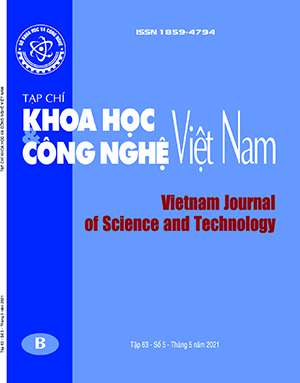Studying the anticancer activity in vitro of doxorubicinencapsulated pH-sensitive redox nanoparticles.
Abstract
Doxorubicin (DOX) is known as a chemotherapeutic agent for treating a variety of cancers. However, due to non-specific distribution, DOX causes severe side effects, leading to the limitation of its clinical application. In this study, pH-sensitive redox nanoparticles containing DOX were studied to form drug-coated nanoparticles with the size of about 40-60 nm that increases the concentration of drugs accumulated at the tumor site in response to low pH conditions. The optimal properties of the nanoparticles were investigated by analysing the antioxidant activity, sensitivity to pH, drug delivery in a low pH environment, and toxicity on cancer cells, thereby observing the possibility of inhibiting the migration of cancer cells. Results showed that the combination of DOX and the pH-sensitive redox nanoparticles not only increases anticancer in colorectal cancer (C-26), breast cancer (MCF-7) but also reduces bovine aorta endothelial cells (BAEC) and inhibits C-26 cell migration in vitro. The paper results reveal the application potential of the pH-sensitive redox nanoparticles in improving the effectiveness of cancer treatment.

